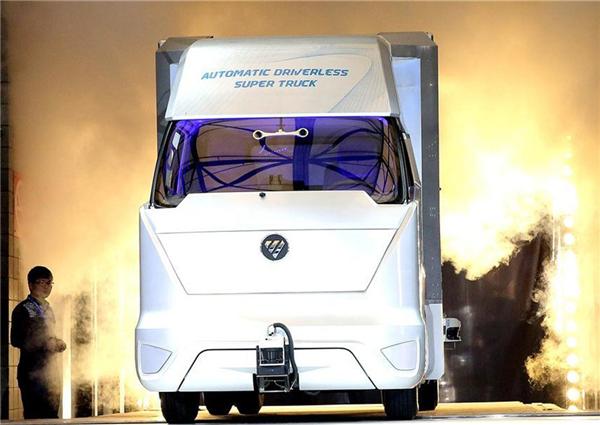Tucson Self-Driving Truck Holographic Tamper Evident Labels With Honeycomb Holographic Tamper Evident Labels With Honeycomb,Medicine Holographic Sticker,2D / 3D Holographic Sticker,Custom 2D / 3D Holographic Sticker SHENZHEN SENING PACKING MATERIAL CO.,LTD , https://www.seningpacking.com
According to foreign media reports, China may plan to run ahead of the United States in the battle to use submarine trucks to subvert the road freight industry. 
Many companies are developing self-driving truck technology. Their goal is to reduce costs, reduce traffic accidents and increase the efficiency of the trucking industry by extending drivers' driving distances, including rest periods.
In Europe and the United States, Volvo, Daimler, Uber and other companies are testing autopilot trucks under the supervision of experts. However, several Chinese companies are developing self-driving trucks, loose supervision, and the desire to change the domestic disorderly truck industry, which may pave the way for the development of self-driving truck technology. This will allow China to gain the upper hand in the development of new ways of shipping.
Hou Xiaodi, Chief Technology Officer of Tucson, said that in China, intercity freight will be a big market. Tucson has developed a self-driving truck platform in cooperation with a major truck manufacturer in China (Hashidate has not disclosed the partner name). He said that at present, there is basically no limit to testing autopilot systems in China. He believes that the government supports autopilot testing because the government wants to see the progress of the truck industry.
Tucson is collecting data through many manned trucks. It plans to demonstrate its technology in the first quarter of next year and commercial demonstrations in 2018. The method used by Tucson is particularly economical. It relies on computer vision and algorithms that understand the details of the scene and not only identify vehicles but also predict their possible behavior. Hou Xiaodi said, "Everything is accomplished through computer vision and deep learning techniques."
Hou Xiaodi received his Ph.D. degree in computational and neurological direction from the California Institute of Technology. He studied with renowned neuroscientist Christof Koch and has been engaged in the development of advanced computer vision technology for many years.
According to data provided by Tucson, in China, there are about 7.2 million trucks engaged in intercity freight transport, and 16 million drivers. The market size exceeds 300 billion US dollars annually, and the driver accounts for about 40% of the cost of truck transport companies. Some long-distance transportation tasks require two or even three drivers to complete. Tucson’s technology will reduce the number of drivers needed for long-haul shipments to one, and the driver can sleep while the car is on the road.
It is not only Tucson that realizes that there is a huge business opportunity in the Chinese freight market. Baidu is also investing in autopilot and other artificial intelligence technologies. Its partner in the truck industry is Beiqi Foton, demonstrating a self-driving truck prototype at an exhibition held at the Shanghai New International Convention and Exhibition Center this week. Baidu has several teams developing autopilot systems, including a team to develop driverless cars. Baidu plans to display the latest version of its technology this week.
The U.S. truck transportation market is even larger, at about 700 billion U.S. dollars per year. After acquiring a startup called Otto in August this year, Uber accelerated the development of self-driving trucks. Last month, an Otto autopilot truck completed its debut and delivered 50,000 cans of beer.
Huang Qi, a venture capital company cloud-qi venture investor, said that the truck freight market has attractive business opportunities. He agreed with the central government's efforts to support the development of self-driving trucks, but the local government needs to face the problems caused by the unemployment of truck drivers. "The labor and fuel savings are huge, so the market will give birth to self-driving trucks."